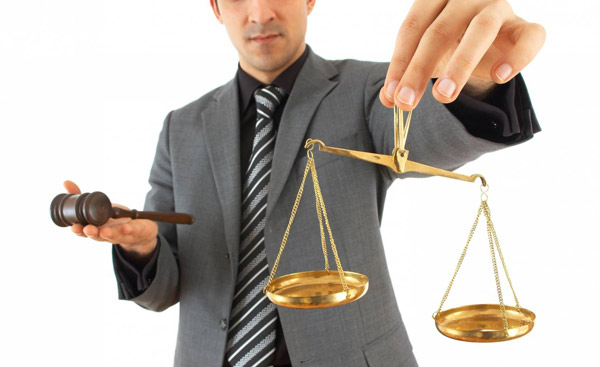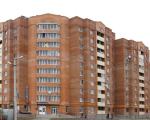How many times according to the rules you can participate in privatization
The opportunity to privatize housing appeared among citizens more than 20 years ago. Over the years, most of the residential premises became the property of residents free of charge, but non-privatized apartments also remained, so the privatization period was .
As before, and now, not all residential buildings are considered public, there are premises that cannot be privatized, for example, property, private or corporate. "Kolkhoznoe", located in villages and villages, is privatized on certain conditions.
Dear readers! The article talks about typical ways to solve legal issues, but each case is individual. If you want to know how solve exactly your problem- contact a consultant:
It's fast and IS FREE!
Citizens living for decades in premises that are not their property are asking the question of privatization. But initially it is necessary to figure out whether it is possible to privatize them at all.
Thus, premises are not subject to privatization:
- office, equipped for residential, which are provided to employees of enterprises for use in the performance of professional duties, but not for living;
- located in dormitories used for temporary stay, most often by non-residents;
- located in houses located inside military camps or municipalities of a closed type;
- in a dilapidated (dilapidated) state.
But if a citizen lives under a social tenancy agreement in an apartment or municipal building, then he, and those living with him, can receive housing free of charge for personal use forever. Privatization is also subject to other buildings, garages and country houses, as well as land under them.
In this case, the question arises, how many times can one participate in privatization?
Under the law, the process can be carried out by an adult only once, but there are options for re-privatization under certain circumstances
The order of the procedure is set out in the law on privatization No. 1541-1.
Based on the provisions:
- the apartment can be transferred free of charge to the citizens who live in it;
- citizens with private property can privatize public housing;
- the number of meters of living space cannot serve as a limitation;
- housing can be privatized by all registered, regardless of whether they have family ties with the main tenant or not;
- each resident is allocated a separate share or housing is transferred to common ownership;
- all check-outs cannot take part in the process, but they must agree to it.
Repeat procedure rules
Despite the fact that the law speaks of a one-time participation in privatization, under certain circumstances it is possible to participate again.
According to the law on privatization, art. 11, part 2 it is received by persons who:
| Participated in privatization as minors | Having reached the age of majority, they can receive ownership of other housing. To do this, they had to leave the previous one at any age. Also, they should not have ownership or part (share) in the previously privatized premises. |
| Lost their home due to an emergency, natural disaster, terrorist attack or other incident in their community | The condition is valid if they lost the privatized premises, but after the incident they received a new one from the state and live in accordance with the social lease agreement. Now they can make public housing a property. |
| Moved to Russia from the republics of the former Soviet Union or the Far North | They transferred the former social housing to the former owners, and they can privatize the newly received in Russia. |
In other cases, housing can be re-privatized if the owner returned his apartment to the state under certain circumstances, i.e. deprivatization has occurred. This means that the deal concluded earlier has been declared invalid, so the premises have returned to the municipality.
Deprivatization is possible if:
- The agreement was terminated at the initiative of the owner of the contract. The privatization participant himself must fill out an application. The reason is the desire to live in a rented apartment, and not your own. Usually, owners refuse housing that was previously privatized due to financial considerations, family circumstances, and other reasons.
- The contract was declared invalid by the court, because someone's rights were violated, for example, those of persons registered on the premises, or a state body.
In one case, if the owner voluntarily returned the privatized apartment to the state, then in the future he cannot resort to free privatization of this or another premises if he settles in it under a social lease agreement.
In fact, it is believed that the right to privatization has already been exercised. In another case, if the contract is declared invalid, then it is considered that the transaction has lost its force and is recognized as not completed. Therefore, the citizen has not exercised his right to privatization and can participate again. The provision on the recognition of transactions as invalid is set out in the Civil Code, Art. 167.
Before starting the procedure for privatizing a land plot, you should familiarize yourself with the information.
What laws regulate the process of privatization of real estate can be found in the article on.
In order to sue a contract that made public property private, violations must be found.
They apply to situations where:
- the transaction was carried out by a person on the basis of a power of attorney, but he exceeded his authority;
- legal representatives of children 14–18 years of age did not give their consent for the child to participate in privatization;
- the documents were signed by the person who was pressured, or the citizen was inadequate in his actions;
- the citizen was misled and did not understand the consequences of the process;
- the rights of citizens to receive a share were violated.
From the moment the interested person became aware that the privatization procedure was violated (CC, art. 196 and 200), a claim can be filed within 3 years which constitute the limitation period. If privatization did not take place, then the parties returned to their original position.
In such cases, such actions can occur repeatedly, i.e. the state again becomes the owner of the premises, and the citizen becomes the tenant. Everyone registered in a residential building again becomes a resident on the basis of a social lease agreement.
If someone was discharged illegally, he will be reinstated in his rights. Those registered can again prepare documents for privatization.
How many times can you participate in the privatization of objects
So, according to the law, it is only allowed to take part in the housing privatization procedure:
- 1 time for a citizen who has reached the age of majority;
- 2 times for a minor, before and after reaching the age of majority;
- - multiple times.
The second and third cases can only be applied under certain conditions described above. But the law also provides for the transfer of possession of other objects. If a citizen has participated in the privatization of housing, this does not mean that he cannot get a garage or a land plot in his ownership.
Apartments
If a citizen became the owner as a result of the free privatization of one apartment or its share, then he cannot claim housing in another in the same way. Also, the right is considered to be realized if he took part in the privatization, and then returned the premises to the state.
An apartment can be privatized by a citizen if he lives in it according to a social lease agreement, is one of the tenants and is registered at this address. The second important condition is the actual residence in a residential area, and permanent.
If a citizen registered temporarily, then at the end of the period his registration will end and this does not mean that he has the right to participate in the process of obtaining housing. In the event that during temporary registration the tenant refuses to be discharged and continues to occupy the living space, he will have to be evicted through the court. If he files a counterclaim against eviction, then by a court decision he can be registered permanently, especially if this is a family with minors.
A lawsuit can be filed by unscrupulous residents, for example, that he is a distant relative or the family does not have its own premises and nowhere to live. Then you have to divide the living space between them. Although such situations are rare, it is better not to apply for privatization if visitors are temporarily registered in the apartment.
When documents for privatization are submitted for several residents, it can be divided into parts that will be equal. For example, if a family of two adults and a child lives in a room, then after privatization 3 people can become owners.
In another case, when 2 of them write a refusal, the premises are transferred to the ownership of one. But there must also be agreement from them that they do not object to privatization. Municipal housing owned by enterprises and former collective farms can be privatized only with the consent of all those living in the apartment.
For incompetent citizens or people with disabilities who cannot independently take part in the procedure, all necessary actions are performed by their guardians.
garage
To privatize a garage, you must:
- formalize the right to property and register the received certificate at the Registration Chamber;
If the rights to the property of the “motor house” are formalized, then the owner can further dispose of the property: donate, bequeath, lease, sell. But the land remains only on lease, and the contract will have to be constantly renegotiated.

Sometimes it is possible to resolve the issue of privatization of a cooperative building and the land under it only through the court
Land plot
If garage buildings are drawn up separately, then the land, due to the common foundation and walls, is considered common and it is impossible to become the owner of a separate plot under the building.
Only after all car owners have registered the rights to their "caravans" should they submit a collective application to the local authorities and buy out all the land. Then each owner becomes the owner of a share of the land plot, which should belong to the cooperative.
Land can be privatized not only by citizens, but also by legal entities that own structures erected on it for various purposes. Moreover, plots may be in municipal or state ownership, but be transferred to the possession of the applicants.
Privatization can be:
The state allowed to carry out only until 2019, but in some cases it can still be done if the land is already in perpetual use or received into possession for life by inheritance.
As a result of privatization, the state land plot becomes private. The legislator also approved a provision for owners of legal buildings - they must buy the land under their buildings or take it on a long-term lease. Privatization is subject to land, which forms a single plot.
If a citizen has 2 or 3 plots, and they belong to the same garden partnership or dacha association, then they can also be privatized for free once in a lifetime, but on condition that they are in perpetual use, or the owner has lifetime inheritance rights to them.
It was these plots that citizens received in possession from their enterprises in the pre-perestroika period in Soviet times. But today the land allocated before the adoption of the Land Code in Russia and after is subject to registration.
Clarifications for minors
An exception to the privatization rules are minor children:
- for the first time they participate in privatization with their legal representatives if they live with them in a state-owned apartment;
- the second time when they reach the age of majority, but under certain conditions.
If in the first case, privatization is carried out without the participation of minors, then, having matured, they often sue to cancel the previous decision, so that there is an opportunity to participate in the privatization of other municipal housing, especially when they have long since entered from the previous address.
But they cannot avoid the process at a young age, because:
- live with their parents under a social lease agreement;
- registered in a public office;
- parents decided to privatize housing.
Also, on the basis of the law on privatization, children must be included in the agreement on the transfer of housing to citizens if they are registered in the premises. Because the common ownership of the premises is transferred not only to adults, but also to children. A minor, becoming the owner of the premises, retains the right to re-participate 1 more time after the age of majority.
If a child receives a share of ownership in a privatized apartment, then it is impossible to sell such housing without the permission of the guardianship and guardianship authority. Parents will have to provide evidence that the alienation transaction will not lead to a deterioration in the property rights of the minor.
The subtleties of the procedure
The process of privatization of housing has its own characteristics, for example:
- If those living in the premises have decided to draw up privatization documents for one family member, then they, including minors, must write a refusal in his favor. But it is possible that the guardianship authority will not give consent for the child to give up his part.
- When several citizens live in the premises, they can receive it in shared ownership, with the right to dispose of their share independently. If a decision is made to formalize common property without allocating shares, then all residents have the right to dispose, but with mutual consent, for example, spouses.
- If, as a result of an unsuccessful transaction for the sale of a privatized apartment, a citizen has lost it, then he can apply to the authorities with a request to provide him with other public housing. But in this case, it is believed that he has already participated in privatization, so he will not have a second opportunity.
- Citizens are allowed to become sole owners of housing or co-owners, regardless of how many times you can participate in privatization. If a citizen is allowed by law to re-pass the procedure, then each time he has the right to submit documents for free housing in whole or in part.
- If a citizen already has property obtained as a result of free privatization, then he can receive the second and others in the same way only for money. If you have property acquired in another way (purchase, donation, inheritance), it is possible to participate in free privatization.
- If the right to re-take part in the process has returned to the person, he has the opportunity to write a waiver voluntarily when he plans to privatize another municipal facility.
- Those who have the right to part of the living space can write a refusal and consent to the privatization of the premises without his participation, while he must sign out from the specified address. St. Petersburg and the region - +7 (812) 309-85-28
- Regions - 8 (800) 333-88-93
APPLICATIONS AND CALLS ARE ACCEPTED 24/7 and 7 days a week.




